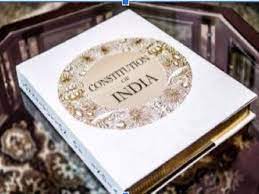Karnataka High Court
Diocese of Chikkamagaluru v. Lancy J Narona & Others
MISCELLANEOUS SECOND APPEAL NO.98 OF 2021 (RO)
Bench- HON’BLE MR JUSTICE H.P.SANDESH
Decided On 26-05-2023
Facts of the case-
This case involves a dispute between the plaintiffs, who are citizens of the country and residents of Chikkamagaluru town, and the defendant, who is the religious head of the Archdiocese of Chikkamagaluru. The plaintiffs are Christian Catholics who follow the traditions and language of Konkani-speaking Catholics. They allege that there is a significant population of Konkani-speaking people in Chikkamagaluru town.
The plaintiffs claim that they have been denied the right to offer prayers in their own language, Konkani, at the local church, which is under the defendant’s control. They argue that Konkani is a recognized language under the Indian Constitution and that it is their constitutional right to offer prayers in their own language. They assert that the defendant’s actions amount to a violation of their fundamental right under Article 25(1) of the Constitution of India.
The plaintiffs further contend that they have formally requested the defendant to permit them to offer prayers in Konkani, but they have received no response. They clarify that they do not object to offering prayers in Kannada or any other language.
The plaintiffs argue that there is no specific statute or law governing Christian churches in India. They assert that the defendant, as the head of the churches in the Diocese of Chikkamagaluru and Hassan, is subject to the laws of the land. Therefore, they request the court to direct the defendant to conduct prayers in Konkani language on Sundays and allow Konkani catechism classes and masses on a regular basis. They also seek a permanent injunction to prevent the defendant from violating their fundamental rights under Article 25(1) of the Constitution.
In response, the defendant has filed a written statement and an application under various sections and rules of the Civil Procedure Code (CPC). The defendant argues that the suit should be dismissed because it is outside the jurisdiction of the civil court and falls within the religious authority of the Catholic church. They claim that the decisions regarding language policy are within the powers of the Bishop of the Diocese as per the Canon Law.
The defendant contends that the suit is barred under specific canons of the Canon Law and asserts that the plaintiffs do not have the standing to represent the entire community but have filed the suit in their individual capacity. Therefore, they request the court to dismiss the suit by allowing their application.
In summary, the plaintiffs, as Konkani-speaking Catholics, are seeking the court’s intervention to allow them to offer prayers in their language at the church controlled by the defendant. They argue that this is their constitutional right, while the defendant maintains that the religious authority of the Catholic church should handle this matter and that the suit is barred under the Canon Law.
Relevant Provisions
| The Constitution of India | Related to |
| Art. 25 | Freedom of conscience and free profession, practice and propagation of religion |
Judgement
The court observed that the Trial Court had erroneously framed a point for consideration regarding the applicability of Canon Law, despite the fact that Canon Law is not recognized. It further stated that while considering the maintainability of the case, the court should only look into the averments made in the plaint and should not consider the defense. The court disagreed with the appellant’s argument that the matter pertained to rituals and concluded that the suit was filed seeking the relief of worshipping in a specific language at the church.
The court also noted that although the defendant had stated before the Trial Court that they would not press the question of cause of action, the Trial Court had still made an approach without considering the pleadings that were not pressed into service.
Based on these observations, the First Appellate Court correctly reversed the Trial Court’s finding and concluded that the appellant’s defense was not legally sustainable. The court held that the matter needed to be considered in accordance with the law. As a result, the appeal was dismissed.
JUDGEMENT REVIEWED BY ABHAY SHUKLA
“PRIME LEGAL is a full-service law firm that has won a National Award and has more than 20 years of experience in an array of sectors and practice areas. Prime legal fall into a category of best law firm, best lawyer, best family lawyer, best divorce lawyer, best divorce law firm, best criminal lawyer, best criminal law firm, best consumer lawyer, best civil lawyer.”


